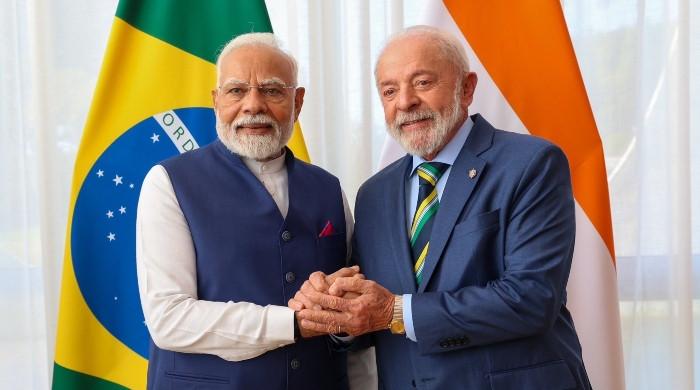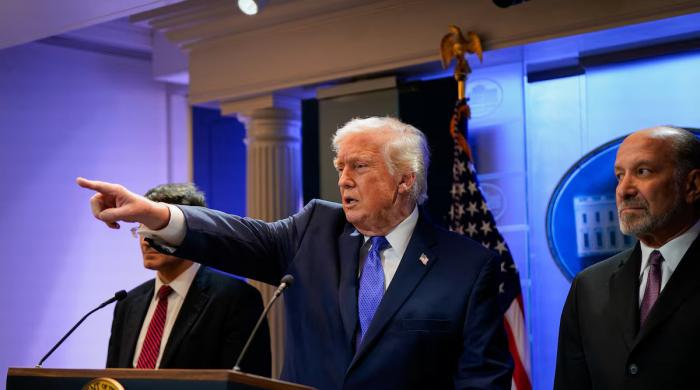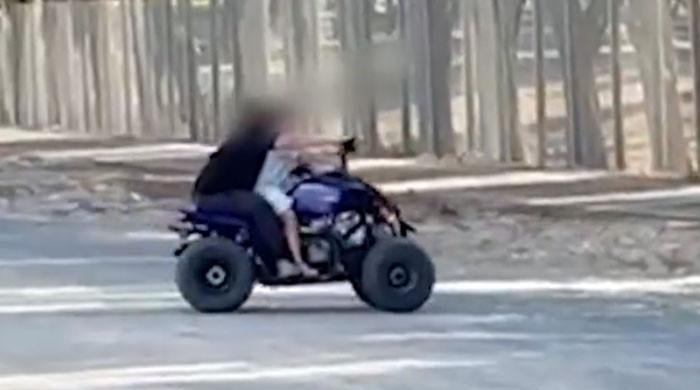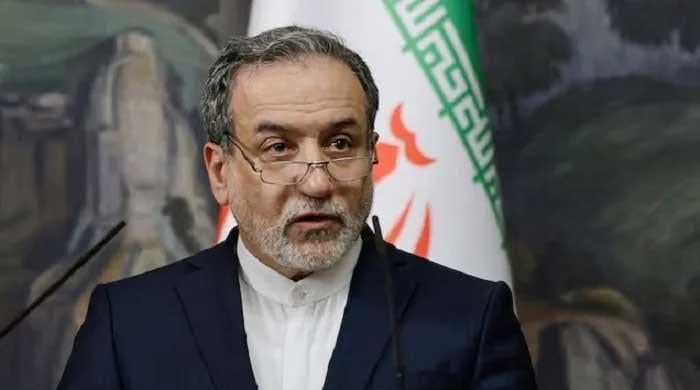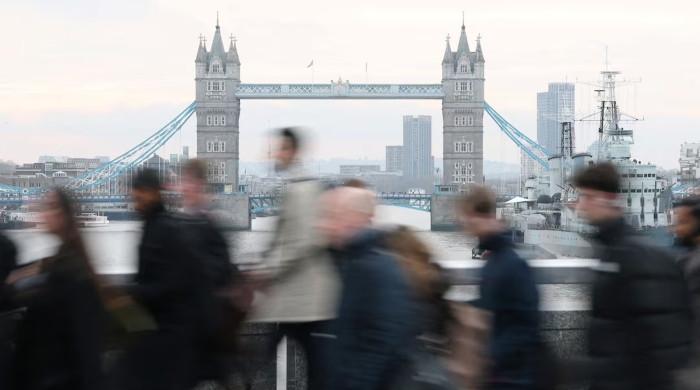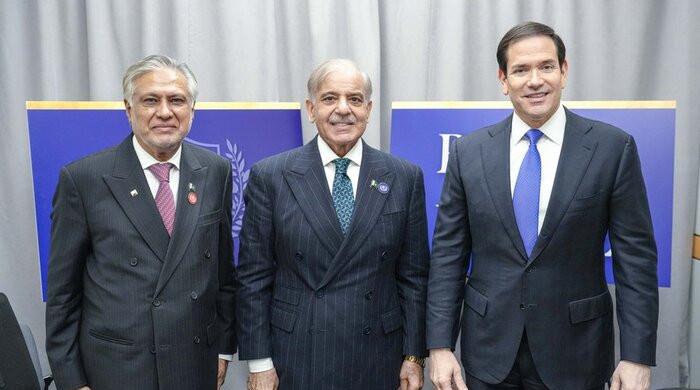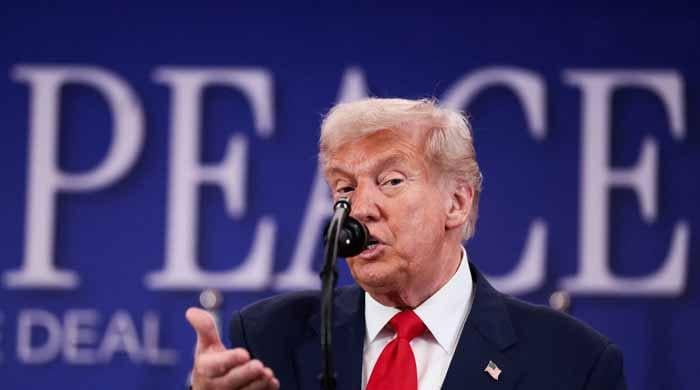Evictions and expulsions of Muslims to Bangladesh precede Indian state polls
Bengali-speaking Muslims, have become vulnerable targets for right-wing groups, says analyst
July 28, 2025
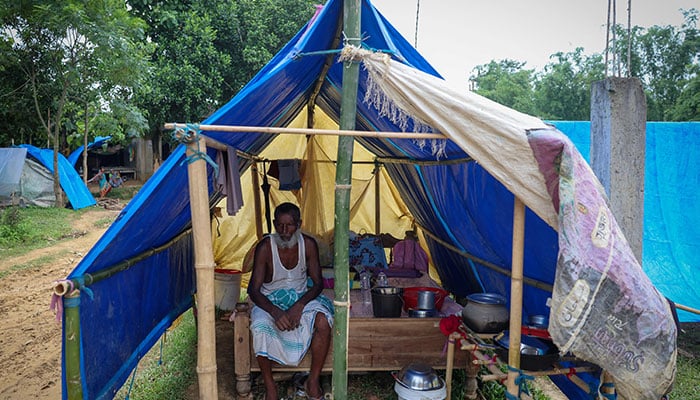
GOALPARA: Beneath a sea of blue tarpaulin in a corner of northeastern India near Bangladesh, hundreds of Muslim men, women and babies take shelter after being evicted from their homes, in the latest crackdown in Assam ahead of state elections.
They are among thousands of families whose houses have been bulldozed in the past few weeks by authorities — the most intense such action in decades — who accuse them of illegally staying on government land.
The demolitions in Assam, where Prime Minister Narendra Modi's Hindu nationalist party will seek reelection early next year, have coincided with a national clampdown on Bengali-speaking Muslims branded "illegal infiltrators" from Bangladesh, since the August 2024 ouster of a pro-India premier in Dhaka.
"The government repeatedly harasses us," said Aran Ali, 53, speaking outside a patch of bare earth in Assam's Goalpara district that has become the makeshift home for his family of three.
"We are accused of being encroachers and foreigners," said Ali, who was born in Assam, as the scorching July sun beat down on the settlement.
Assam accounts for 262 km of India's 4097 km-long border with Bangladesh and has long grappled with anti-immigrant sentiments rooted in fears that Bengali migrants — both Hindus and Muslims — from the neighbouring country would overwhelm the local culture and economy.
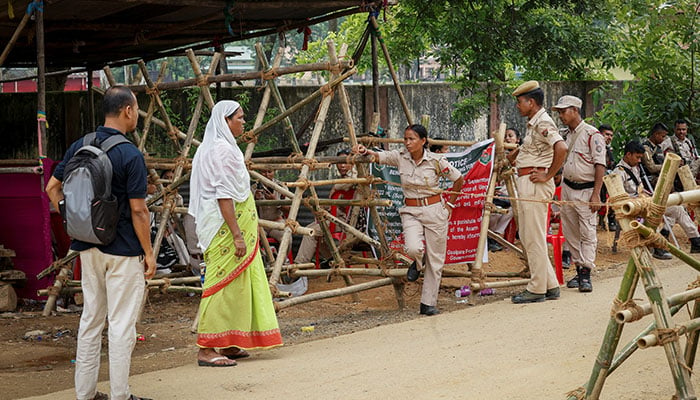
The latest clamp-down, under Modi's Bharatiya Janata Party, has been exclusively aimed at Muslims and led to protests that killed a teenager days ago.
Assam's firebrand Chief Minister Himanta Biswa Sarma, who is among a slew of ambitious BJP leaders accused of fomenting religious discord to stir populist sentiments ahead of polls across the country, says "Muslim infiltrators from Bangladesh" threaten India's identity.
"We are fearlessly resisting the ongoing, unchecked Muslim infiltration from across the border, which has already caused an alarming demographic shift," he recently said on X.
"In several districts, Hindus are now on the verge of becoming a minority in their own land."
He told reporters last week that migrant Muslims make up 30% of Assam's 31 million population as of the 2011 census.
"In a few years from now, Assam's minority population will be close to 50%," he said.
Sarma did not respond to a Reuters request for comment.
Targets for right-wing groups
The BJP has long believed Hindu-majority India to be the natural homeland for all Hindus and implemented policies to counter the country's large Muslim population.
In 2019 it amended India's citizenship law to effectively naturalise undocumented non-Muslim migrants from neighbouring countries.
Since he became chief minister in May 2021, Sarma's government has evicted 50,000 people — mostly Bengali Muslims — from 160 square kilometres of land, with more planned.
In just the past month alone, about 3,400 Bengali Muslim homes have been bulldozed in five eviction drives across Assam, according to state data. The previous government evicted some 4,700 families in the five years to early 2021.
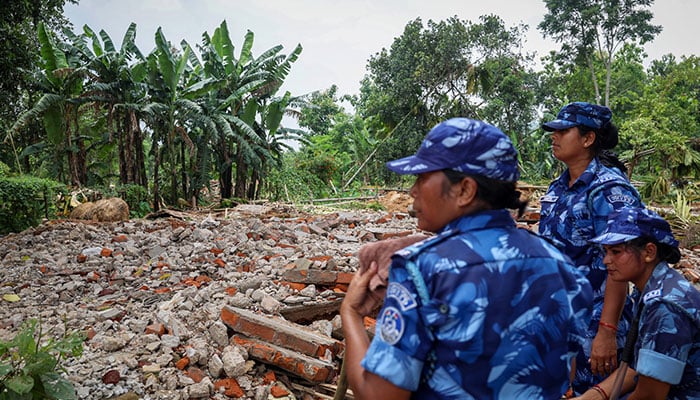
"Bengali-speaking Muslims, regardless of their legal status, have become vulnerable targets for right-wing groups in India," said Praveen Donthi, senior analyst at International Crisis Group.
Indian opposition leaders have accused Sarma of using the evictions and expulsions to polarise voters ahead of elections.
"These measures are politically beneficial and profitable for the BJP," said Akhil Gogoi, an opposition lawmaker.
The main opposition Congress party, whose crushing defeat in the 2016 Assam election gave the BJP its first government in the state, said it would rebuild the demolished houses and jail those who destroyed them if voted back to power.
Sentiments against Bengali-speaking Muslims
The surge in evictions follows a deadly attack in April on tourists in the Indian Illegally Occupied Jammu and Kashmir (IIOJK) blamed on "terrorists" from Pakistan — an allegation vehemently denied by Islamabad. BJP-ruled states have since rounded up thousands of Bengali Muslims, calling them suspected "illegal immigrants" and a potential security risk.
Analysts say worsening ties between New Delhi and Dhaka following the ouster of Bangladesh prime minister Sheikh Hasina have intensified sentiments against Bengali-speaking Muslims, giving the BJP a political weapon to use for votes.
Bengali is the main language of Muslim-majority Bangladesh and is also widely spoken in parts of India.
States, including Assam have also "pushed back" hundreds of Bengali Muslims into Bangladesh. Some were brought back because appeals challenging their non-Indian status were being heard in court, Reuters has reported.
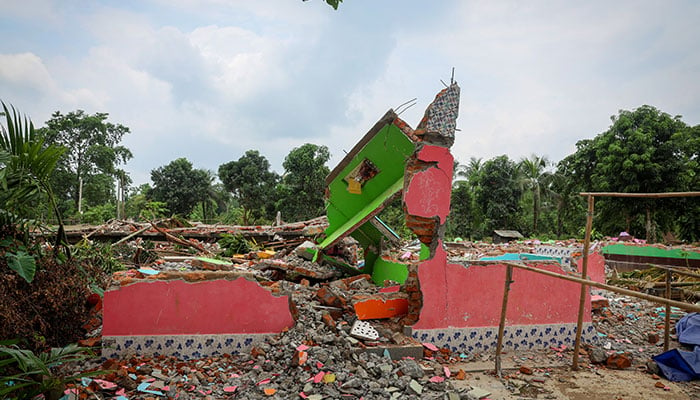
Assam officials say around 30,000 people have been declared foreigners by tribunals in the state. Such people are typically long-term residents with families and land, and activists say many of them are often wrongly classified as foreigners and are too poor to challenge tribunal judgements.
New Delhi said in 2016 that around 20 million illegal Bangladeshi migrants were living in India.
"The Indian government is putting thousands of vulnerable people at risk in apparent pursuit of unauthorised immigrants, but their actions reflect broader discriminatory policies against Muslims," said Elaine Pearson, Asia director at Human Rights Watch.
India's foreign ministry said in May that the country had a list of 2,369 individuals to be deported to Bangladesh. It urged Bangladesh to expedite the verification process.
Bangladesh's foreign ministry did not respond to a request for comment.
Since Hasina's removal and a rise in attacks on Hindus in Bangladesh, Sarma has frequently shared details of foiled infiltration attempts, with pictures of those caught splashed on social media.
"The ethno-nationalism that had long animated Assam's politics seamlessly merged with the religious nationalism of the BJP,” said Donthi.
"The focus then shifted from Bengali-speaking outsiders to Bengali-speaking Muslims."




